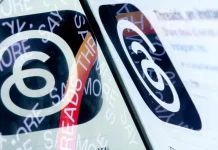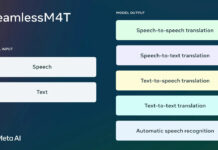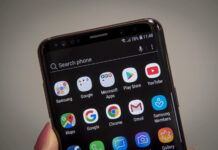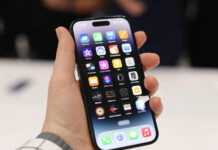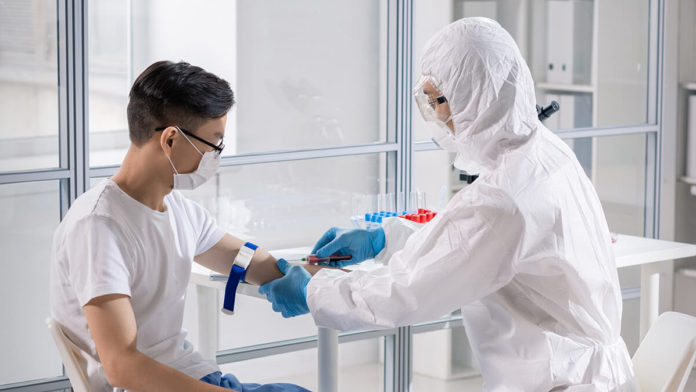ANTIBODY TESTS ARE big news right now. Many people consider these blood tests key to “reopening the economy” and easing back on social distancing, sending us back to work and to some semblance of a normal social life again. The problem is that, despite the rush to make them quickly available in huge numbers to people in all places, it’s not clear yet if most of the tests are any good, or what negative or positive test results even mean.
How Long Does the Coronavirus Live on Surfaces?
Widespread testing has already begun in some metropolitan areas, and the goal is to figure out how many people have already had Covid-19, in the hope that more and more of the population will develop an immunity to SARS-CoV-2, the coronavirus that causes the illness. The mayor of Los Angeles announced last week that both the city and county will make the test available to anyone who wants one, and in New York the governor announced that antibody tests will be available at 5,000 pharmacies across the state.
An antibody test is not used to detect whether you currently have Covid-19. It’s to find out if you’ve been exposed to SARS-CoV-2, the new coronavirus that causes it, and already developed an immune response. If you’ve caught the virus—no matter whether you experienced a flu-like illness recently or haven’t even felt sick—your body will have produced proteins called antibodies to fight it off. The finger-prick blood test will detect these antibodies.
It takes about 5 to 10 days after exposure to the virus for the body to start making antibodies, but that timeline can vary by a few days, which is why many testing centers will make you wait at least seven or eight days. It’s also why the antibody test is only given to people who’ve recovered from a case of suspected Covid-19, and not while they’re sick with it. If they were to take the test too soon, while they were still in the early stages of their immune response, they might not have enough antibodies in their blood to get a positive test result, even if they definitely have Covid-19.
See Also:- Scientists Uses AI to predict which corona-virus patients need ventilators
That’s different from the Covid-19 diagnostic test used to find out if a person currently has the disease. A diagnostic test uses a swab of fluid taken from a person’s nose or throat, and checks that for genetic traces of the virus.Does a Positive Result Mean You’re Now Immune?
Nobody can say with certainty right now. Recently, the World Health Organization warned that there’s no conclusive proof that having SARS-CoV-2 antibodies will prevent a person from succumbing to the virus a second time. On the other hand, there’s not much proof yet that anyone has had it twice; early reports were likely based on faulty testing.
Immunity can vary a lot after exposure to different kinds of viruses. Exposure to, say, the measles is usually enough to make a person immune for life. Catching influenza, on the other hand, doesn’t do much to protect you from next year’s flu wave, because the flu virus mutates quickly, and because the body starts to wind down production of flu antibodies after six months or so.Most Popular
Is SARS-CoV-2 evolving rapidly? How long do SARS-CoV-2 antibodies last in the body? No one knows yet, but some researchers are hopeful that the virus may turn out to be similar to its genetic cousin, the original SARS virus. Exposure to that one conferred immunity for two or three years. When it comes to SARS-CoV-2, Murthy says, “We think there’s reason for optimism, that extrapolating from other viral illnesses and other coronaviruses, that if you actually have a positive antibody … it may suggest you have some protection from another infection. But it’s not yet proven.”
The question of how long immunity lasts looms over the widespread rollout of antibody tests and has created some uncertainty and pessimism. If one bout with the SARS-CoV-2 virus confers long-term immunity, that will slow down its rate of infection, as more and more people become immune. Eventually, we would reach “herd immunity,” the point when so many people have antibodies that transmission would essentially stop.
However, if wide swathes of society have the antibodies but the immunity they grant fades relatively soon, then it won’t end up meaning much. People who had and survived Covid-19 will soon become vulnerable to catching it again.
See Also:- The coronavirus has us even more reliant on Apple, Amazon, Facebook and Google
Some medical professionals think that SARS-CoV-2 will be with us for years to come, and may even persist year-round as people who are asymptomatic or have mild symptoms keep spreading it. It may flare up again seasonally, just like influenza or the common cold. If so, that will continue until a vaccine is developed.Are the Antibody Tests Reliable?
This question is hard to answer, because there are so many new tests entering the market and under development; the number of available tests is changing constantly. There are at least 120 commercial tests already available, including one by Cellex, which was granted emergency approval by the FDA to skip some red-tape requirements so that it could be put into use more quickly. The Mayo Clinic has developed its own in-house test. The Centers for Disease Control and Prevention is also developing one, but won’t say much about it.
Because Covid-19 is so new, none of these new tests has a long track record proving how accurate it is. A test can give a false negative—meaning you have the antibodies but it mistakenly says you don’t—if the levels of antibodies are simply too low for the test to pick up. It can also give a false positive if it mistakes something else for a SARS-CoV-2 antibody.
The New York Times reported that a team of more than 50 scientists tested the commercial kits on the market by late April, and only three of the 14 tested were consistently reliable, although that study hasn’t been peer-reviewed. On Monday, the FDA tightened up its approval guidelines, citing concerns about flawed results and some companies falsely marketing tests as “FDA approved.”
“While the system is improving, there are a lot of tests out there, and there’s some concern that some really aren’t detecting Covid-19 antigens,” Murthy says. “So they may be testing for other coronaviruses—because it’s in the coronavirus family—and falsely indicating that they’re Covid-19.”
Early efforts at mass testing for antibodies have not provided much clarity yet. For example, two recent studies in California raised questions about the researchers’ methods and the accuracy of the testing devices they used.Should You Get One?
You may as well, says Murthy, with the caveat that you may need to take the result with a grain of salt. “From a public standpoint, certainly we need to test as many people as possible, and the intent is to try to make it available for anyone who wants it,” says Murthy.Most Popular
But many hospitals and cities, including Los Angeles, are prioritizing tests for people who’ve been in high-risk situations, such as health care providers and people who’ve worked in essential businesses like food delivery.
Officials in Chile recently announced a plan to issue “release certificates” that allow those who’ve tested positive for antibodies a freedom of movement that others, who are presumably more vulnerable to contracting Covid-19, aren’t allowed. But the WHO warned against “immunity passport” plans like this, saying that they can afford a false sense of security to people who test positive. Given the questionable reliability of some tests and the uncertainty over whether having antibodies sufficiently protects a person from reinfection, giving people a premature go-ahead to resume normal life could undo the progress that countries have made in stemming the virus’s spread.
So as testing becomes available near you, feel free to take advantage of it. But continue to social-distance until institutions such as the CDC, WHO, and other leading medical organizations have a more solid understanding of what your test results should mean to you.
See Also:- Effect Of COVID-19 Earth’s Ozone Layer Is Recovering

